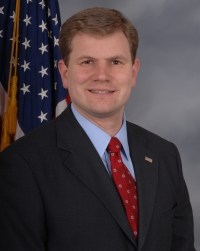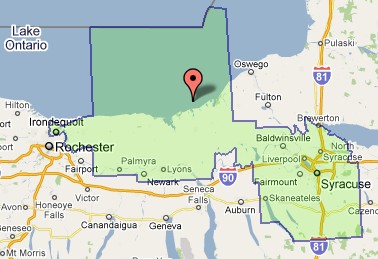S1209 would have sailed through the North Carolina Senate 39-5 this afternoon had it not been for Sen. Joe Sam Queen who objected to the third reading of the bill. Senator David Rouzer (R-Johnston, Wayne) also changed his vote from “no” to “yes” which would have ultimately left the count at 40 for and 4 against. After that, the Senate adjourned and will take up the bill once again on Monday. What a job well done… for the cable and phone companies.
Brian Bowman reports that none of the Wake County senators opposed the bill or asked that the moratorium be removed.
Out of the entire North Carolina Senate, there are just four good guys?:
Senator Joe Sam Queen (Haywood, Yancy, Avery, Madison, McDowell, Mitchell) [email protected]
Senator Steve Goss (D-Alexander, Ashe, Watauga, Wilkes) [email protected]
Senator James Forrester (R-Gaston, Iredell, Lincoln) [email protected]
Senator John Snow (D-Cherokee, Clay, Graham, Haywood, Jackson, Macon, Swain, Transylvania) [email protected]
Be sure to send all four of these folks your enormous thanks for doing the right thing. Apparently that is becoming more and more difficult these days.
For those who forgot why this fight matters, here’s a reminder. Watch it.
[flv width=”480″ height=”380″]http://www.phillipdampier.com/video/Martha Abraham, Mars Hill NC.mp4[/flv]
The people in Mars Hill, N.C. cannot afford to forget.
Now let’s talk reality for a moment. I’ve been involved in legislative battles on issues regarding telecommunications policy all the way back to the late 1980s when I was fighting for home satellite dish-owner rights. Back then it was a struggle against big cable, too. It took several tries, but we eventually won that one. Along the way, a lot of the same legislative trickery involved in S1209 reminded me of similar experiences back then. We shouldn’t make the same mistake twice. Let’s take a look:
The revised S1209 establishes a subcommittee to study municipal broadband funding issues while buying the industry a one year reprieve from any other cities or town going their own way. The members on this fact-finding endeavor are specifically defined:
- A cable service provider.
- A wireless telecommunications service provider.
- A local exchange provider that is not a wireless telecommunications service provider.
- A local exchange provider that is a wireless telecommunications service provider.
- A city that operates a cable system and an electric power system as a public enterprise.
- A city that operates a cable system as a public enterprise and does not operate an electric power system as a public enterprise.
- A city that is a member of a joint agency established under G.S. 160A-462 for the operation of a cable system as a public enterprise.
- The North Carolina League of Municipalities.
Now, can anyone reading tell me who is -not- on the list? Have you guessed?
-You- are missing from this list!
Everyone else is in the back room — cable and phone companies, cities, and a lobbying group representing cities. But not one North Carolina consumer who lives with broadband challenges day in and day out has a place at that table. What do they know anyway?
[flv width=”480″ height=”380″]http://www.phillipdampier.com/video/Brooks Townes Weaverville NC.mp4[/flv]
Brooks Townes in Weaverville doesn’t have a seat at the table, either.
How ironic that everyone holding a seat claims their interests coincide with ordinary citizens like you and I. After all, we’re supposed to be what this fight is all about. Sometimes, our interests will meet. Other times, especially when it comes to legislative strategies, they might not.
An Uncomfortable Revelation Caught On An Open Mike
Thanks to WUNC’s Laura Leslie, you can listen yourself as Senator Clodfelter, not realizing his mike was on, tells Senator Blue, “Now I’ll tell you that the … what I call the crazies who circulate around this issue are not going to like this [S1209 revision with a moratorium], but the municipalities are all on board. They negotiated it, they negotiated it so it’s not possible….” Blue asks Clodfelter how long he’s been talking with the groups representing municipalities. Clodfelter’s response: “We’ve been meeting daily — twice daily, so they’re all on board with this precise text.” The recording ends with Clodfelter presumably tapping his mike. Is this thing on? You bet it is. (June 2, 2010) (50 seconds)
You must remain on this page to hear the clip, or you can download the clip and listen later.
We already know what Senator Clodfelter feels about the people who are appalled at yet another embarrassing year of legislators falling all over themselves to do big cable and phone companies another favor. In his mind, we’re the “crazies” — the indignant citizens fed up with the time, money, and effort not spent building 21st century broadband networks, but instead devising strategies to prevent building them.
Corning has a plant in North Carolina that manufacturers endless miles of fiber optic cable that 40 members of the North Carolina Legislature just said they don’t need. Send it somewhere else.
Those 40 senators just told citizens — who are still using dial-up Internet access in the Appalachians, or who can’t afford the asking price for service in Spring Creek, or who only get excuses from AT&T why certain homes in Alamance County can have broadband, but they cannot — they really don’t care. What AT&T, Time Warner Cable, and Embarq wants is much more important.
[flv width=”480″ height=”380″]http://www.phillipdampier.com/video/Layten Davis Spring Creek NC.mp4[/flv]
…More important than the needs of folks like those in Spring Creek.
So while they propose to hold a debate over the merits of the free market vs. community’s doing-for-themselves when the free market fails them, countless thousands of North Carolina’s residents go without or are still hearing modem tones as they connect at speeds dozens of times slower than everyone else.
With a legislature hellbent on stalling or stopping projects that ameliorate this serious problem, no wonder North Carolina’s broadband rankings are falling fast. In 2007, the Census Bureau ranked North Carolina 35th in broadband adoption. A year later, the state was down to 41st. At least you can be proud you’re not West Virginia, right?
But then again, there are eight more positions to drop, so there is still room to make things even worse.
Now I ask myself, what could have possibly happened to deliver 40 votes into the hands of big cable and phone company interests.
Could it have been the time honored trick of dividing and conquering the opposition? For cities who want to deliver service, the threat of “either/or” seemed particularly effective. Either take our one year moratorium -or- face the ludicrous original legislation that required a community-wide referendum if Mrs. Nickels over on Fairfax Drive needs a new cable installed at her home to get a better picture. Either way, because certain folks didn’t say no way to either choice, it’s a victory party for Time Warner Cable, with no need to BYOB — they’ll provide it themselves. Besides, say the bill’s supporters, we’re offering a chance to hear your voice and views on our stall-tactic fact-finding subcommittee. Senator Clodfelter even thanks you for being reasonable and adult about all this.
AT&T thanks you as well.
Just keep those “crazies” out of the room.
Cable and phone companies get seats, so they can continue to deliver their talking points that don’t actually deliver broadband to any underserved area of North Carolina. Haven’t they said enough already? As Senator Queen asked, where is the broadband service for my communities?
In the end, the fact finding mission (cough) will deliver a watered-down report that will find its way into the nearest recycling bin. The cities’ strong views on municipal broadband will be diluted because they’ll have four competing voices from private industry saying the exact opposite. Besides, after yesterday’s performance in the Senate Finance Committee, does anyone really believe members like Senator Hoyle care what the subcommittee will have to say? He can just make it up as he goes along, just as he did when supposedly quoting the mayor of Salisbury.
After all the years spent watching negotiations over legislation, allow me to share this one piece of advice — collaborate and compromise with interests that seek to bury you at your own risk. Big money interests will call you every name in the book for standing and fighting for your principles (and a few legislators too), but if you make it known it’s time for the other side to start compromising — by actually delivering service and charging a reasonable price for it, there wouldn’t have been a need to engage in this battle in the first place.
That’s why this “crazy” website didn’t back down when Time Warner Cable brought its “new and improved” Internet Overcharging scheme to the table after consumers rebelled against the original plan. The cable company promised a listening tour, to take advice from reasonable consumers, and to modify its plans accordingly. Some folks played the game on their field — debating numbers back and forth about what an appropriate amount of rape and pillaging of our wallets was tolerable. Time Warner changed a few numbers and blessed us with a counteroffer that would have only tripled broadband prices for the same level of service. Couldn’t we be reasonable and take their offer?
We said no and stood by it, even if it meant going down with a fight. By not backing down, we won the battle knowing full well the war wasn’t actually over yet. But you can’t win a battle, much less a war, if you surrender and refuse to fight.
In the end, we were right and they were wrong. We even proved they were never really interested in listening in the first place.
The correct way forward is to remain 100 percent committed to opposing S1209, so long as it stalls, bans, slows, or sets onerous conditions on providing broadband relief. That means calling every senator between now and Monday and then doing the same in the House.
The three words you need to remember are real simple:
Kill this bill.
If you are spending time negotiating over who gets to sit in what chair on the subcommittee, you are not paying attention.
Kill this bill.
If you are trying to split the difference over how long the moratorium is going to last, you do not understand.
Kill this bill.
If you are trying to extract some extra concessions to reduce the rape and pillaging of your citizens, stand up, take a deep breath, go outside, and then tell the first person you see to call their representatives and tell them to:
Kill this bill.
If you are a consumer, you’re probably already upset. In a polite, persuasive, and persistent way, tell your elected officials you understand S1209 has been modified thanks to a compromise, but nobody bothered to compromise with you. You aren’t interested in this bill in any form, and you know that legislator is going to do the right thing and vote no to:
Kill this bill.
If they vote yes, all they’ve managed to kill is your faith in them as your elected representative. That’s something that can be taken care of at the next election.
Maybe people like me are crazy to dare to presume that our elected officials work first and foremost for “we the people” and not for the phone and cable company. Maybe it’s nuts to spend so much time and energy fighting legislation that is so obviously written by and for the industry that cuts a check to the first representative willing to put their name on it and introduce it. We’ve seen the merits of those who tried the same thing last year. Only one of them is no longer with the state legislature, brought down on ethics charges. How surprising. This year’s fight is lead by a retiring senator who will never endure the satisfaction voters might get disconnecting him from the legislature for selling them down Telecom River. That is not too surprising either.


 Subscribe
Subscribe






